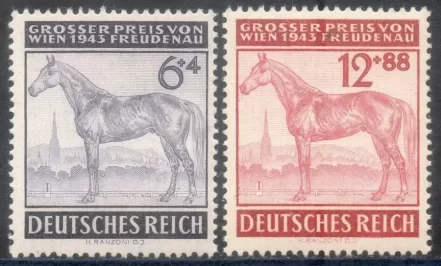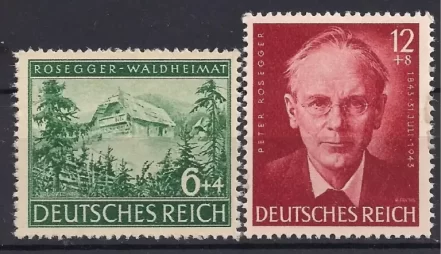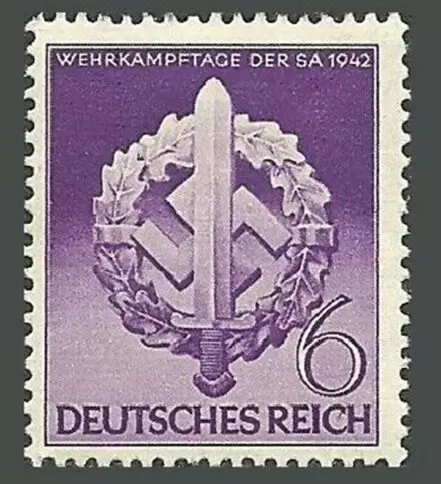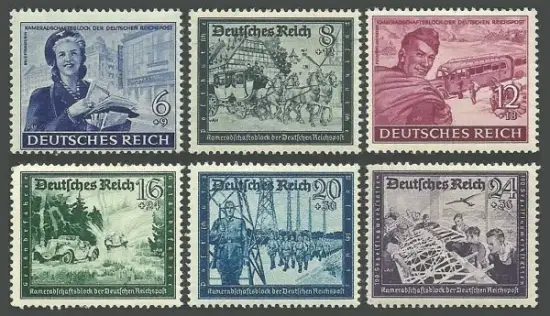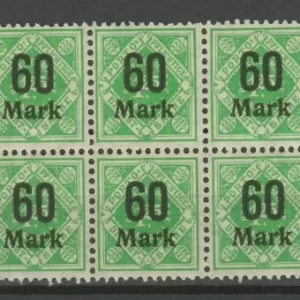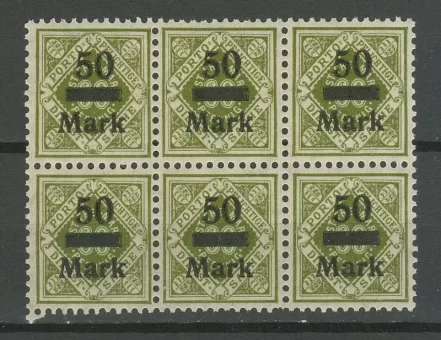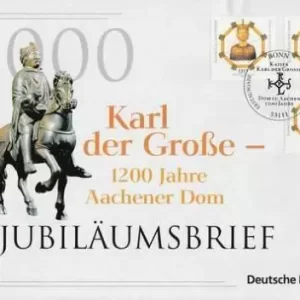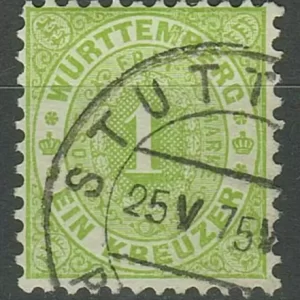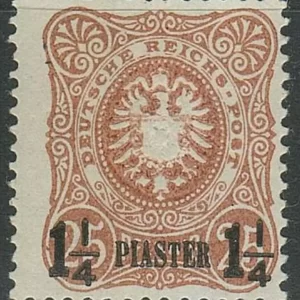German Reich year 1943 Vienna derby / Horses MNH **stamps
The German Reich issued several stamps in 1943, and among them were commemorative stamps for the Vienna Derby. The Vienna Derby, a major horse racing event, was a significant cultural event in Vienna, Austria, and the German Reich often commemorated such events with special postage stamps.
Here is a detailed description of the 1943 Vienna Derby stamps issued by the German Reich:
Description of the Stamps
- Design and Imagery:
- Main Image: The stamps typically featured detailed illustrations of horse racing scenes, highlighting the excitement and dynamism of the Vienna Derby.
- Text: The stamps usually included the words “Wiener Derby 1943” (Vienna Derby 1943) and “Deutsches Reich” (German Reich).
- Denomination: The stamps came in various denominations, reflecting the different postal rates of the time.
- Colors and Printing:
- The stamps were printed in monochromatic colors, often in shades like brown, green, or blue, which were standard for German stamps of that era.
- High-quality engraving techniques were used to capture the intricate details of the horse racing scenes.
- Historical Context:
- The issuance of these stamps during World War II (1943) reflects the Nazi regime’s interest in promoting cultural and sporting events, even during wartime.
- Vienna, being an important city within the German Reich at the time, had significant cultural importance, and the Vienna Derby was a prestigious event worth commemorating.
Collecting and Value
- Rarity: The value of these stamps can vary depending on their condition (mint or used), rarity, and demand among collectors.
- Historical Significance: Stamps from this period are of particular interest to collectors of World War II and Third Reich memorabilia.
Notable Features
- Engraving Quality: The detailed engraving work is a notable feature of these stamps, with fine lines and careful shading to bring out the realism of the horse racing scenes.
- Commemorative Nature: As commemorative stamps, they were not only functional for postage but also served to celebrate and publicize a significant cultural event.

